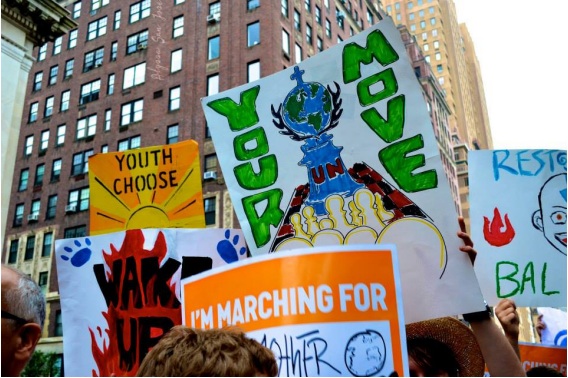When expressing a dissenting opinion in a social situation, it’s easy to feel alienated.
It’s easy to feel the eyes in the room turning against you, to feel isolated and even out of control.
According to Wikipedia, Cognitive Dissonance “is the mental stress or discomfort experienced by an individual who holds two or more contradictory beliefs, ideas, or values at the same time, or is confronted by new information that conflicts with existing beliefs, ideas, or values.”
When this happens, it can seem as if Social Darwinism is suddenly playing out small-scale. This can take a simple form when political discussion comes up among coworkers chatting at lunch, or sparks can fly when we support the life decision of a sibling or close friend and rally to their support when others seek to bring them down.
We might find it’s something as simple as being the only vegetarian at a pig-roast, or one of the few people to show up to protest the treatment of circus animals outside the circus. We may realize this as our eyes are met by the alternating disapproving and curious stares of the circus patrons.
Especially when expressing an opinion that dissents from the majority (whether it’s simply the majority within the context of our family, our workplace, our group of friends, or within our society at large), cognitive dissonance makes people who are hearing views that differ from their own firmly held beliefs of how-the-world-works to act defensively, or, sometimes, to dismiss new viewpoint altogether.
This can be rough on those expressing new opinions and looking to expand their horizons outside the framework within which they were raised.
Growing up a meat-and-potatoes kind of girl and strict Reform Protestant, I turned vegetarian at 13 and, after attending confirmation classes, declined to actually get confirmed later the same year.
My pastor asked me to say a few words to the congregation regarding why I decided not to be confirmed. I thought it would be disrespectful, but made a speech when I was asked a second time. On one side of the pulpit stood the kids who were being confirmed; on the other side, there was me.
I stated that while I appreciated the sense of community and sense of values I had been given in being raised in the church, I needed some time to study other religions and couldn’t commit (at such a young age) to just one, simply because it was the Thing To Do.
Some people in the small, 50-person congregation were so baffled at what I’d done, that when I was leaving the church, they didn’t even acknowledge it. They either ignored me from that day on, or they just shook my hand, presumably pretending to suddenly be hard of hearing, and said “Congratulations on your confirmation.”
Almost overnight, the elders of the church started to shun me around town.
No more small talk around town. I held true to my mission of learning about other religions and about philosophy, as well, buying Harvard textbooks on comparative religion, Jung, and Freud. I read all kinds of nonfiction my entire teenage years. But some people seemed to stay angry, or to simply pretend the non-confirmation hadn’t taken place.
That was one point in my life when I was in the minority, within the context of my social support system. I felt angry and confused, for a time, that my desire to expand my horizons was met with silence from some, even though I had thoroughly thought out my decision. For their part, those who were upset by my refusal to be confirmed must also have felt anger and confusion, or there would have been no reason for them to treat me the way that they did. What seemed like such a personal decision for me had deeply affected them in such a way that they couldn’t even acknowledge me at the grocery store.
What I had to do from then on—to diffuse some of my confusion over the sense of unfairness of the situation—was realize I had shaken things up a bit too much for some people, try to see where they were coming from, and stick to my plan of studying.
I’m happy to say this is one case in my life where friction caused by cognitive dissonance has been tempered and led to growth in my own life.
There is an anger and a feeling of being out of control, whether in a social or political context, that comes from being in the minority. This can lead to great frustration, and it’s not always clear what we should do to allay it. People expressing minority opinions can feel isolated and angry, and people hearing them can feel defensive and angry. This is cognitive dissonance.
Gloria Steinem said “The truth will set you free, but first it will piss you off.” I got pissed off about something that year. I didn’t like how farm animals were being treated. Vegetarianism was hip in 1994, and I jumped on the bandwagon.
Thirteen was a year of big changes for me, and also a year of examining big truths. Some people in my family thought it was a phase, and some people, holding firmly to their belief that “God made animals for people to eat”, were predictably quite defensive about me refusing to eat meat, whether I stood on a soapbox about it or not. For my own part, vegetarianism became so real to me, and meat soon became so taboo, that I had to learn to feel the cognitive dissonance when every social gathering was centered around meat-based dishes, and learn how to respond without over-responding when people new to groups would ask me about my dietary choices while everyone was eating.
So in effect, I was dealing, soon, with not only the cognitive dissonance of others, but of my own as well.
While we don’t want a world full of stereotypically pissed-off or defensive people, we don’t want a world of complacent people. We want a world where people get a bit pissed off, people look around and question the status quo, and think outside the box. Anger, if worked with in a healthy way, can have its advantages.
The anger that comes from holding a minority viewpoint can be motivating or crushing. The anger involved in hearing a minority opinion comes from discomfort, and needs to be worked with in healthy ways as well. Naturally we don’t want to stew in our own juices: Many people are familiar with the Buddhist adage that holding onto anger is like drinking poison and expecting the person we are angry with to die. Similarly, Freud said that depression was anger turned inward (brought up so artfully by Dr. Melfi in one of my favorite counseling session scenes in the Sopranos).
So we might want to ask ourselves: how do we use anger—brought on by cognitive dissonance—in a constructive manner?
We might use anger to get motivated to create change. We might use it to organize volunteer activities, to educate ourselves and others, to be the change we wish to see in the world and become the person we would like to be. Sometimes we will be the ones who will feel like we are in the minority. Other
times, regardless of how liberal we feel, we will feel like there are people threatening our firmly held beliefs in some way or another.
It’s all part of life and growth. In looking back I’m glad I’ve had the chance to grow in these ways and learn about myself in the process.
Love elephant and want to go steady?
Sign up for our (curated) daily and weekly newsletters!
Editor: Renée Picard
Photo: elephant archives


 Share on bsky
Share on bsky





Read 0 comments and reply